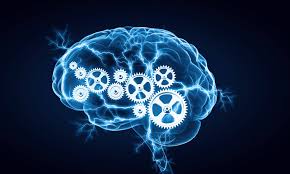Being Open-Minded to the Idea of Maximizing Intelligence. Understanding the Many Differentiating Complexities Hidden Beneath the Skull of the Human

February 16, 2021
Intelligence. The ability to acquire and apply knowledge and skill. The question to what extent can humans learn to maximize their intellectual capacity has been tossed and thrown around society for generation after generation. The measuring of intelligence dates back to 1904 when Alfred Binet created the first IQ test. The tests bring the questions to mind of how can intelligence be improved? Which mental mindsets are the best when it comes to improvement of the mind? Which type of intelligence can be improved and how? The only way to determine the answer to these questions is to look at the results of the attempts at improvement and the data that multiple credible scientists bring forth for us. The understanding that it is possible to improve intelligence can make a huge impact on society. People can become more intelligent which will therefore benefit relationships, work, schooling and life in general. The idea that intelligence can be improved has been dissed for hundreds of years, but today, that may change. There have been thousands of studies, tests and results that differ from the idea of the impossible. These results have led to the understanding that humans have the ability to fulfill and maximize their intelligence through many different types of testing and experiences. Through strenuous, time consuming experiments, the results are in. Improving intelligence is possible.
Improving intelligence is not possible without changing the mindset to allow the brain to grow and blossom. There are two types of mindsets. The fixed and the growth mindset. The fixed mindset revolves around the idea that the level of intelligence that you’re given is stuck with for life and that it is unchangeable. This idea leaves people lost in this everlasting problem of feeling helpless when it comes to their smarts. They sit here lurking in the depths of darkness that there is no hope in becoming a better version of themselves when there is. They are stuck in “Believing that your qualities are carved in stone-the fixed mindset-creates an urgency to prove yourself over and over. If you have a certain amount of intelligence, a certain personality, and a certain moral character-well, then you’d better prove that you have a healthy dose of them. It simply wouldn’t do to look or feel deficient in these most basic characteristics.” (Dweck 6) That is where the growth mindset comes in. The growth mindset is where to be. It is the DisneyLand of the brain. This way of thinking works in a way that anything is possible and that the amount of intelligence displayed now is only temporary. Here in this “…mindset in which these traits are not simply a hand you’re dealt and have to live with, always trying to convince yourself and others that you have a royal flush when you’re secretly worried it’s a pair of tens. In this mindset, the hand you’re dealt is just the starting point for development. This growth mindset is based on the belief that your basic qualities are things you cultivate through your efforts. Although people may differ in every which way-in their initial talents and aptitudes, interests, or temperaments, everyone can change and grow through applications and experience.” (Dweck 7) They are able to grow and learn to better themselves to become the best versions of themselves. The growth mindset is all based on learning and improving oneself. It is possible to change the mindset. The process is a challenge but is something that one is capable of. It is worth the time and effort to change and it has been proven; “According to a study cited by The New York Times, a group of students were given classes on how the brain works. Half were told that it’s possible to get smarter; the other were told the opposite.When tested on the course materials, the first group retained 85 percent of what they’d heard while the second group retained only 54 percent. In other words, simply believing that you can make yourself smarter actually makes you smarter! Apparently your brain takes cues from your beliefs and becomes more “cooperative,” thereby making it easier for neurons to build connections. Or, as Henry Ford once said: “if you think you can do a thing or think you can’t do a thing, you’re right.” (James, Geoffrey) There are billions of humans but two mindsets. We are given the opportunity to pick and choose our mindset and change if we decide to. The most important part to understand is that we are given 100% choice on our own mindsets and how we want to think. This all makes us who we are.
Improving fluid intelligence is possible. You may be wondering what that is but maybe to your surprise, you use it everyday. This intelligence is defined as the “ability to learn from experience, solve problems, and use knowledge to adapt to new situations.” (Myers, David G) This type of intelligence is the most important intelligence because without any roadblocks in the way, one gives up and gets stuck, without being able to move on in life. In order to be successful, perseverance is key. Fluid intelligence is highly correlated with creativity. If someone has always noticed that their ideas are different from many others, they are always thinking outside of the box, and all of their ideas are inventions and not innovations, they probably have a high level of fluid intelligence. Artists such as Monet and van Gogh displayed strikingly high levels of fluid intelligence. All of these artists spent many hours practicing and improving upon their work and to better themselves and their artwork. It is important to understand that “Nobody can expect to reach the heights of creativity without mastering the necessary knowledge and skill..”(Simonoton, Dean Keith) These skills are not always nature related. A lot comes from nurture, and the time and effort given and put forth. If they would not have spent time with their creations and improving their levels of fluid intelligence, we may not even know their names. One of the most beneficial ways of improving fluid intelligence is the practice of memory improving games. Hundreds of “…studies confirm the benefits of working-memory training on fluid intelligence, the implications could be enormous.” Games as simple as Sudoku and crossword puzzles can highly benefit levels of fluid intelligence. It is important to understand that we are never stuck at one level of intelligence, and that we are always able to improve our levels of fluid intelligence with many simple tasks.
Intelligence can be improved through many forms of tedious testing. First off, we must be familiar with the idea that “Fluid intelligence is trainable…”(Sternberg, Rober J.) Intelligence improving tests have been around for multiple decades. There are many types of these tests such as; Standford-Binet and Wechsler tests. These are two of the more widely known tests. Worldwide testing has been going on for ages by many credible scientists. Two scientists “Jaeggi and Buschkuehl gave progressive matrix tests to students at Bern and then asked them to practice the dual N-back for 20 to 25 minutes a day. When they retested them at the end of a few weeks, they were surprised and delighted to find significant improvement. Jaeggi and Buschkuehl later expanded the study as postdoctoral fellows at the University of Michigan, in the laboratory of John Jonides, professor of psychology and neuroscience.” (Hurley, Dan) Results like this are very conclusive to the point that intelligence tests can greatly improve brain plasticity. Many different scientists have worked many years to discover something as fascinating as “These limitations notwithstanding, our findings are of general significance because they provide evidence for enhancement of fluid intelligence by cognitive training different from training the test itself. The finding that cognitive training can improve Gf is a landmark result because this form of intelligence has been claimed to be largely immutable. Instead of regarding Gf as an immutable trait, our data provide evidence that, with appropriate training, there is potential to improve Gf. Moreover, we provide evidence that the amount of Gf-gain critically depends on the amount of training time. Considering the fundamental importance of Gf in everyday life and its predictive power for a large variety of intellectual tasks and professional success, we believe that our findings may be highly relevant to applications in education.” (Jaeggi, Susanne M) Gf stands for fluid intelligence. Our life is based on fluid intelligence and the way that we function everyday. These tests that many scientists put out there for people to take to better understand the secrets hidden within their minds and the capabilities that they have. It may be hard to understand these studies because of the minimal amount of time we think about our consciousness and thought process, but it is really important to understand the abilities our brain has and how we can improve it.
Intelligence. The ability to acquire and apply knowledge and skills. This definition is hopefully much more familiar now. This all leads back to the fact that intelligence can be maximized and improved through lifestyle changes and testing. From changing the mindset to taking tests, it can greatly impact the way one lives. Improving creativity and intelligence can impact someone’s job by allowing them to increase productivity with thinking of ways outside of the box to accomplish and achieve problems that may stand in the way of getting things done. This can also improve school work for children and teens. If someone improves their fluid intelligence and changes their mindset to the growth mindset, they can work through challenging and hard problems that someone that is stuck in the fixed mindset could not achieve. Doctors could save more people and think of new ways to save people’s lives with different ways and cures to help save the ill. Researchers and engineers can improve and innovate on our lives which ends up benefitting the standard of living within society. Changing the mindset can be a challenge, but in turn, this mindset change benefits the fluid intelligence. We live in a society based where intelligence is everything. From getting that promotion to creating the next new invention, we are all so focused on success, but success comes with a price. Perseverance. Without it, we would all be fixed mindset people lacking fluid intelligence which would lead to a very unhappy planet. There are many times and places for improvement, just look for the right time to make that improvement. Intelligence is just a temporary ranking. It is not set in stone, only when it is viewed in the fixed mindset point of view. The mind is a very complex, molecular muscle that is the main running function of the body and it needs to be worked and changed. If it is left unchanged and unworked, it will start to stiffen and become weaker. That can be changed with simple mind working tests and the change of mindset. Everyone is capable of it. They just have to make the conscious choice to do so. Do not be afraid of the idea of expanding intelligence because it is possible.
Works Cited
Dewck, Carol S.PhD. “Mindset the New Psychology of Success”. New York. The Random House Publishing Books. 2006.
Hurley, Dan, The New York Times, April 18, 2012, 2012 The New York Times, www.nytimes.com. “Can You Make Yourself Smarter?”
Jaeggi, Susanne M., et al. “Improving Fluid Intelligence with Training on Working Memory.” PNAS, National Academy of Sciences, 13 May 2008, www.pnas.org/content/105/19/6829.short.
James, Geoffrey. “5 Scientific Ways to Make Yourself Smarter.” Inc.com, Inc., 25 Oct. 2015, www.inc.com/geoffrey-james/5-scientific-ways-to-make-yourself-smarter.html.
Simonoton, Dean Keith, Scientific American MIND, Nov/Dec 2012, Vol.23, No. 5, pp.34-41.
Myers, David G. “Myers’ Psychology For AP” New York. Worth Publishers. 2011.
Sternberg, Robert J. “Increasing Fluid Intelligence Is Possible after All.” PNAS, National Academy of Sciences, 13 May 2008, www.pnas.org/content/105/19/6791.
